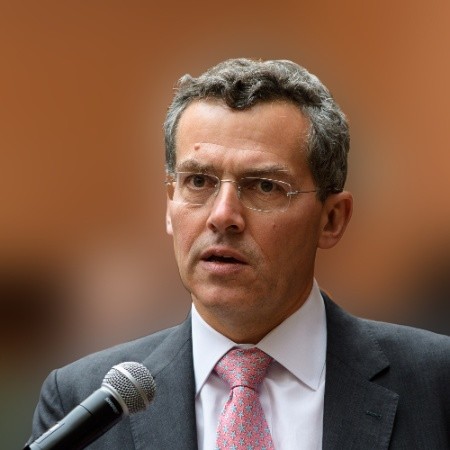
“We’re entering a new phase where sustainability is part of every financial decision”
Will Goodhart, started his new role as Executive Director of the Future of Sustainable Data Alliance (FoSDA) towards the end of April this year, following 18 years as Chief Executive at the CFA Society of the UK.
We caught up with Will to hear his perspective on the next phase of sustainable finance – where sustainability is set to become embedded in every financial decision – and to discuss the role of data, the evolving regulatory landscape and what the recent Data Act means for businesses and consumers.
Ross: Will, you spent nearly two decades at the CFA, much of it focusing on sustainability. What brought you to FoSDA?
Will: For the last 5 to 10 of those years at the CFA, we had a focus on sustainable investing and educating people on how to invest sustainably. So we developed the CFA certificate in ESG investing, now called the CFA Certificate Sustainable Investing. Following this, we developed a certificate in climate and investing and the certificate for impact investing at the beginning of 2024.
I wanted to apply my experience more directly – helping people use their skills and knowledge to advance sustainable finance. So, joining FoSDA felt like a natural fit because of my understanding of the market, the connections I had and the potential FoSDA has as an organisation. It has an important role to play in empowering financial markets to tackle environmental and social challenges through the provision of high-quality, comprehensive data.
Ross: So, what are the barriers to making the market for sustainable data work?
Will: I think improving the consistency, comprehensiveness, and interoperability of data are key. As well as highlighting the value of data and demonstrating the importance of a competitive market in the provision of sustainable data and sustainable analytics.
Of course, FoSDA is not here to solve everything ourselves, but also to convene stakeholders and support the ecosystem.
There are still data gaps out there to work on. For example, real estate data can be fragmented across markets. And even with nature and biodiversity data, which has grown significantly thanks to geospatial analysis and AI, we need to ensure the methodologies are transparent and robust.
Ross: That point on nature data is interesting – it feels like a fast-growing but complex space?
Will: Yes, someone recently called nature data a “jungle” and I think that’s a bit extreme but still apt. There’s tremendous innovation and growth in biodiversity and nature-related indicators, but understanding how that data is derived and making sure the market for nature data functions properly is crucial.
Ross: I think it’s also finding that link to impact as well.
Will: Yes, one of the problems with that nature and impact is knowing your baseline. Getting a baseline for nature is quite challenging. To know that you’re creating impact, you have to know what the situation was beforehand and then be able to measure it in the same way after to see if there has been any positive impact.
Ross: Do you think, as sustainability becomes more embedded in finance, that FoSDA’s work will become easier?
Will: We’re entering a new phase where sustainability is becoming part of every financial decision and that naturally creates pushback from those invested in the old ways. But the integration of sustainability indicators into policy, regulation and standard-setting will intensify, because the challenges are no longer in the distance, they are here, now. That makes it critical to ensure regulations are targeted, proportional, and effective.
Ross: I wanted to get your thoughts on the Data (Use and Access) Act and how this might influence FoSDA’s work?
One positive is that it may change how people think about data – not just as an asset for producers but as something that should benefit consumers more directly. Like with Open Banking, it could open up markets, give consumers more choice, and spark a wider conversation about governance and value sharing.
I think the more that it happens, now that there’s a common framework for it, the more people expect that they should be able to share their data with others in situations where it’s going to be beneficial to them.
Ross: The Data Act also touches on Artificial Intelligence (AI) and how this is being used to analyse data and automate decision making. What are your thoughts on this?
Will: We see a lot of claims of AI-powered models analysing unstructured data to deliver sustainability insights. And while the technology is exciting, it needs to be used appropriately. Consumers of AI-generated data should question its provenance and understand the processes behind it.
Ross: And finally Will, what’s next for FoSDA?
Will: A key priority is making standardisation and machine-readability fundamental to financial reporting and systems, so data can flow seamlessly and effectively. We’re looking forward to working with others to frame that problem and drive progress.
